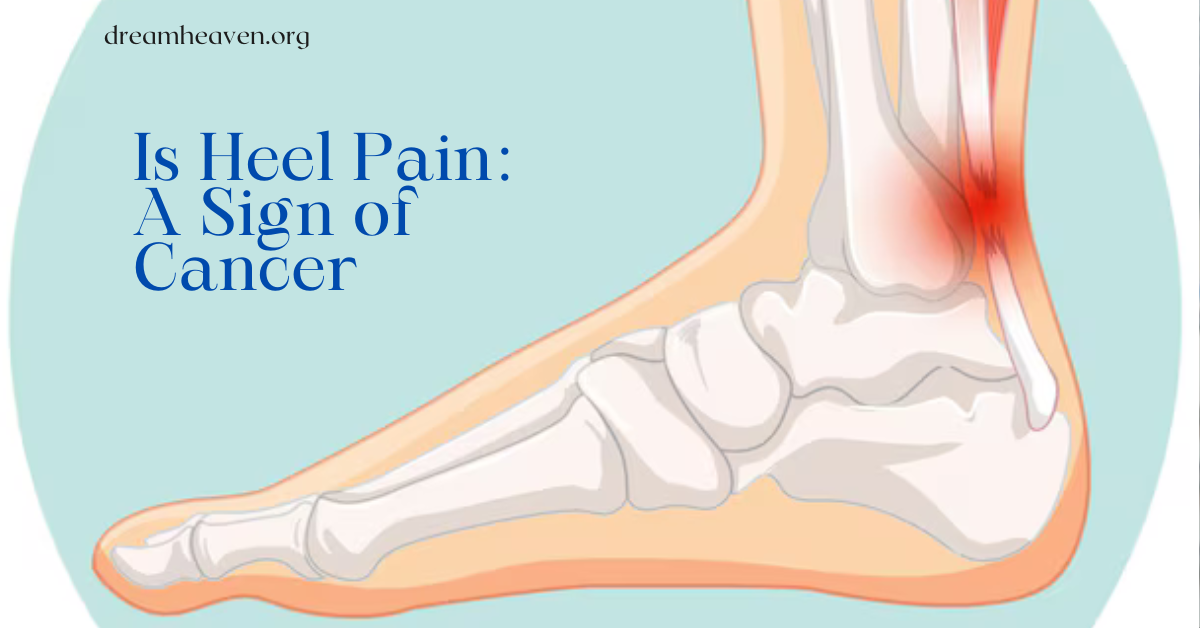Heel pain is a common discomfort experienced by individuals across all age groups. While most cases stem from benign causes like plantar fasciitis or tendonitis, the question arises: Is heel pain a sign of cancer? This article explores the possibilities, dispelling myths while addressing facts with clarity.
Common Causes of Heel Pain
Heel pain is typically linked to everyday factors, including:
Plantar Fasciitis: Inflammation of the thick tissue running under the foot.
Heel Spurs: Bony growths on the underside of the heel bone.
Achilles Tendonitis: Overuse or strain of the Achilles tendon.
Arthritis: Joint inflammation that may extend to the heel.
These conditions account for the majority of heel pain cases and are treatable with rest, physical therapy, or medication.
The Rare Link Between Heel Pain and Cancer
Although infrequent, heel pain can sometimes indicate cancer. The connection, however, requires understanding of specific conditions where cancer may involve the heel.
Bone Cancer and Heel Pain
Bone cancer, such as osteosarcoma, is a malignant tumor that can develop in the bones, including the heel. Heel pain associated with bone cancer is usually severe, persistent, and may be accompanied by swelling or tenderness.
Soft Tissue Sarcoma Near the Heel
Soft tissue sarcomas are rare cancers that can develop in the muscles, ligaments, or other connective tissues around the heel. Symptoms may include localized pain, a noticeable lump, and swelling.
Metastasis to the Heel Bone
Cancer from other parts of the body, such as breast, lung, or prostate, can metastasize to the heel bone. In such cases, heel pain might be one of the initial symptoms, requiring immediate medical evaluation.
Peripheral Neuropathy and Cancer Treatments
Cancer treatments like chemotherapy can result in nerve damage, also known as peripheral neuropathy. This condition may cause heel pain, tingling, or numbness in the feet.
Warning Signs That Need Attention
If you’re wondering, Is heel pain a sign of cancer? it’s essential to consider other symptoms that might accompany the pain. These include:
Unexplained weight loss.
Persistent swelling or lumps around the heel.
Pain that worsens at night or disrupts sleep.
A history of cancer with new or unexplained heel pain.
When to See a Doctor
While most heel pain is benign, certain scenarios warrant medical attention. If the pain is persistent, worsening, or accompanied by other concerning symptoms, it’s time to consult a doctor. Early diagnosis can make a significant difference.
Diagnostic Steps for Heel Pain
Medical professionals use several methods to evaluate heel pain, including:
Physical Examination: To assess swelling, tenderness, or deformities.
Imaging Tests: X-rays, MRIs, or CT scans help identify abnormalities in bones and tissues.
Biopsy: If a tumor is suspected, a sample may be taken for analysis.
Treatment Options for Cancer-Related Heel Pain
If heel pain is linked to cancer, treatment depends on the type and stage of cancer. Possible treatments include:
Surgery: To remove cancerous tumors.
Radiation Therapy: To target and destroy cancer cells in the heel area.
Chemotherapy: To treat systemic cancer or prevent its spread.
Conservative Treatments for Non-Cancerous Heel Pain
For heel pain caused by non-cancerous conditions, treatment options are typically less invasive, such as:
Rest and elevation.
Stretching exercises and physical therapy.
Orthotics to support the arch and relieve strain.
Over-the-counter anti-inflammatory medications.
Psychological Impact of Heel Pain and Cancer Concerns
Worrying about heel pain being a potential sign of cancer can cause stress and anxiety. Understanding the rarity of this connection can help alleviate fears and encourage appropriate action when needed.
Preventing Heel Pain
Simple lifestyle adjustments can help prevent heel pain, such as:
Wearing supportive footwear.
Avoiding prolonged standing on hard surfaces.
Regular stretching of the calf muscles and foot arches.
The Importance of Early Detection
When it comes to serious conditions like cancer, early detection is crucial. Being vigilant about changes in your body and seeking timely medical advice ensures better outcomes.
Conclusion
Is heel pain a sign of cancer? In most cases, the answer is no. Heel pain is usually caused by common, non-cancerous conditions. However, when persistent pain is coupled with unusual symptoms, it’s essential to consult a doctor. Understanding the facts and seeking timely medical care can provide clarity and peace of mind.
FAQs
1. Can heel pain occur without any serious cause?
Yes, most heel pain results from common conditions like plantar fasciitis or overuse injuries and is not related to cancer.
2. What symptoms alongside heel pain might suggest cancer?
Unexplained weight loss, swelling, lumps, or persistent pain that worsens over time may warrant further evaluation.
3. How is cancer-related heel pain diagnosed?
Doctors may use imaging tests like X-rays or MRIs, and in some cases, a biopsy to determine if cancer is the cause of heel pain.
4. Are there effective treatments for non-cancerous heel pain?
Yes, treatments like rest, physical therapy, orthotics, and anti-inflammatory medications often relieve symptoms.
5. Should I be concerned about heel pain after cancer treatment?
If you’ve undergone cancer treatment and experience new or unexplained heel pain, consult your doctor to rule out possible complications.

